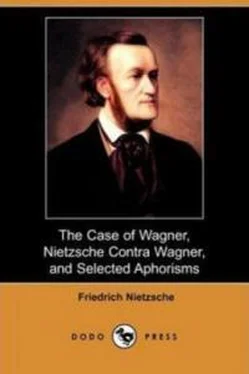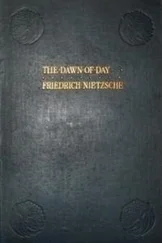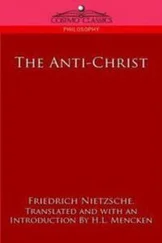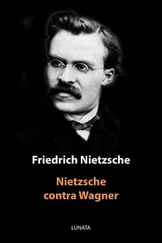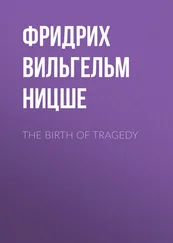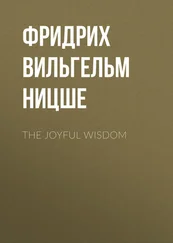2.
What? would it really be the first virtue of a performance (as performing musical artists now seem to believe), under all circumstances to attain to a haut–relief which cannot be surpassed? If this were applied to Mozart, for instance, would it not be a real sin against Mozart's spirit,—Mozart's cheerful, enthusiastic, delightful and loving spirit? He who fortunately was no German, and whose seriousness is a charming and golden seriousness and not by any means that of a German clodhopper…. Not to speak of the earnestness of the "marble statue"…. But you seem to think that all music is the music of the "marble statue"?—that all music should, so to speak, spring out of the wall and shake the listener to his very bowels?…Only thus could music have any effect! But on whom would the effect be made? Upon something on which a noble artist ought never to deign to act,—upon the mob, upon the immature! upon the blasés! upon the diseased! upon idiots! upon Wagnerites !…
A Music Without a Future.
Of all the arts which succeed in growing on the soil of a particular culture, music is the last plant to appear; maybe because it is the one most dependent upon our innermost feelings, and therefore the last to come to the surface—at a time when the culture to which it belongs is in its autumn season and beginning to fade. It was only in the art of the Dutch masters that the spirit of mediæval Christianity found its expression—, its architecture of sound is the youngest, but genuine and legitimate, sister of the Gothic. It was only in Handel's music that the best in Luther and in those like him found its voice, the Judeo–heroic trait which gave the Reformation a touch of greatness–the Old Testament, not the New, become music. It was left to Mozart, to pour out the epoch of Louis XIV., and of the art of Racine and Claude Lorrain, in ringing gold; only in Beethoven's and Rossini's music did the Eighteenth Century sing itself out—the century of enthusiasm, broken ideals, and fleeting joy . All real and original music is a swan song—Even our last form of music, despite its prevalence and its will to prevail, has perhaps only a short time to live, for it sprouted from a soil which was in the throes of a rapid subsidence,—of a culture which will soon be submerged . A certain catholicism of feeling, and a predilection for some ancient indigenous (so–called national) ideals and eccentricities, was its first condition. Wagner's appropriation of old sagas and songs, in which scholarly prejudice taught us to see something German par excellence —now we laugh at it all, the resurrection of these Scandinavian monsters with a thirst for ecstatic sensuality and spiritualisation—the whole of this taking and giving on Wagner's part, in the matter of subjects, characters, passions, and nerves, would also give unmistakable expression to the spirit of his music provided that this music, like any other, did not know how to speak about itself save ambiguously: for musica is a woman …. We must not let ourselves be misled concerning this state of things, by the fact that at this very moment we are living in a reaction, in the heart itself of a reaction. The age of international wars, of ultramontane martyrdom, in fact, the whole interlude–character which typifies the present condition of Europe, may indeed help an art like Wagner's to sudden glory, without, however, in the least ensuring its future prosperity . The Germans themselves have no future….
Perhaps a few people, or at least my friends, will remember that I made my first plunge into life armed with some errors and some exaggerations, but that, in any case, I began with hope in my heart. In the philosophical pessimism of the nineteenth century, I recognised—who knows by what by–paths of personal experience—the symptom of a higher power of thought, a more triumphant plenitude of life, than had manifested itself hitherto in the philosophies of Hume, Kant and Hegel!—I regarded tragic knowledge as the most beautiful luxury of our culture, as its most precious, most noble, most dangerous kind of prodigality; but, nevertheless, in view of its overflowing wealth, as a justifiable luxury . In the same way, I began by interpreting Wagner's music as the expression of a Dionysian powerfulness of soul. In it I thought I heard the earthquake by means of which a primeval life–force, which had been constrained for ages, was seeking at last to burst its bonds, quite indifferent to how much of that which nowadays calls itself culture, would thereby be shaken to ruins. You see how I misinterpreted, you see also, what I bestowed upon Wagner and Schopenhauer—myself…. Every art and every philosophy may be regarded either as a cure or as a stimulant to ascending or declining life: they always presuppose suffering and sufferers. But there are two kinds of sufferers:—those that suffer from overflowing vitality , who need Dionysian art and require a tragic insight into, and a tragic outlook upon, the phenomenon life,—and there are those who suffer from reduced vitality, and who crave for repose, quietness, calm seas, or else the intoxication, the spasm, the bewilderment which art and philosophy provide. Revenge upon life itself—this is the most voluptuous form of intoxication for such indigent souls!…Now Wagner responds quite as well as Schopenhauer to the twofold cravings of these people,—they both deny life, they both slander it but precisely on this account they are my antipodes.—The richest creature, brimming over with vitality,—the Dionysian God and man, may not only allow himself to gaze upon the horrible and the questionable; but he can also lend his hand to the terrible deed, and can indulge in all the luxury of destruction, disaggregation, and negation,—in him evil, purposelessness and ugliness, seem just as allowable as they are in nature—because of his bursting plenitude of creative and rejuvenating powers, which are able to convert every desert into a luxurious land of plenty. Conversely, it is the greatest sufferer and pauper in vitality, who is most in need of mildness, peace and goodness—that which to–day is called humaneness—in thought as well as in action, and possibly of a God whose speciality is to be a God of the sick, a Saviour, and also of logic or the abstract intelligibility of existence even for idiots (—the typical "free–spirits," like the idealists, and "beautiful souls," are décadents —); in short, of a warm, danger–tight, and narrow confinement, between optimistic horizons which would allow of stultification…. And thus very gradually, I began to understand Epicurus, the opposite of a Dionysian Greek, and also the Christian who in fact is only a kind of Epicurean, and who, with his belief that "faith saves," carries the principle of Hedonism as far as possible —far beyond all intellectual honesty…. If I am ahead of all other psychologists in anything, it is in this fact that my eyes are more keen for tracing those most difficult and most captious of all deductions, in which the largest number of mistakes have been made,—the deduction which makes one infer something concerning the author from his work, something concerning the doer from his deed, something concerning the idealist from the need which produced this ideal, and something concerning the imperious craving which stands at the back of all thinking and valuing—In regard to all artists of what kind soever, I shall now avail myself of this radical distinction: does the creative power in this case arise from a loathing of life, or from an excessive plenitude of life? In Goethe, for instance, an overflow of vitality was creative, in Flaubert—hate: Flaubert, a new edition of Pascal, but as an artist with this instinctive belief at heart: " Flaubert est toujours haissable, l'homme n'est rien, l'oeuvre est tout "…. He tortured himself when he wrote, just as Pascal tortured himself when he thought—the feelings of both were inclined to be "non–egoistic." … "Disinterestedness"—principle of decadence, the will to nonentity in art as well as in morality.
Читать дальше
